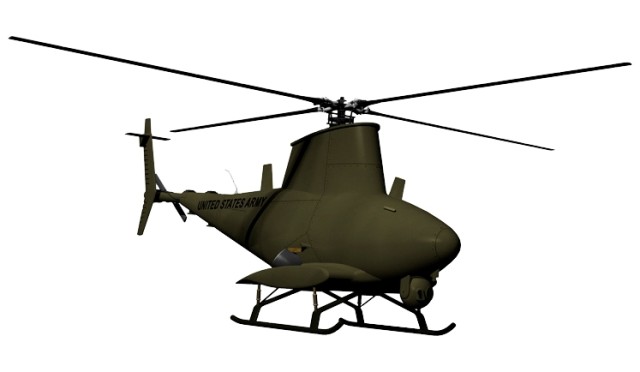Air Force officials invited Defense representatives to the Pentagon April 13 to discuss the Air Force's proposal to assume executive agent responsibilities for medium- and high-altitude unmanned aerial vehicles. The proposal was put forward March 5 in a memorandum to senior Defense officials from Air Force Chief of Staff Gen. T. Michael Moseley.
The memorandum stated the Air Force's desire for executive agency of the UAVs, and also indicated its desire to discuss the proposal with other service and combatant command representatives, said Col. Charlie Bartlett, the Air Force deputy director for intelligence, surveillance and reconnaissance, or ISR, capabilities.
"We had a very productive discussion with attendees who were clearly able to openly address their concerns," said Colonel Bartlett. "The first step in this process was to provide a joint forum for warfighting communities to collaborate, discuss their ideas and issues as well as provide dialogue for a way forward."
The Air Force shared its vision for UAV executive agency. As the executive agency for medium- and high-altitude UAVs, the Air Force would oversee the development, acquisition and procurement of UAVs designed to meet joint requirements as well as their associated equipment and ground control stations, said Lt. Gen. David Deptula, deputy chief of staff for intelligence, surveillance and reconnaissance.
The meeting also afforded an opportunity to discuss a comprehensive approach to optimizing our nation's ISR capabilities as outlined in the March 5 memo.
"Each service brings unique core competencies," said Colonel Bartlett. "Our focus is working together with our sister services to build interdependence in order to effectively provide kinetic and non-kinetic effects, in a manner consistent with joint doctrine, to all joint users; and to procure the best, most cost effective combat capabilities for the joint force."
DoD has reached the point in the proliferation of UAVs where it is necessary to achieve acquisition efficiencies and eliminate duplication of effort. The Air Force proposal fosters standardization of systems to enhance interoperability. With a single lead agency, costly redundant UAV acquisitions would be reduced.
The Air Force and Army are both buying from the same company. Someone needs to be the lead agency for this, have a center of excellence, and operate from a policy and requirements standpoint, said Gen. Ronald Keys, commander of Air Combat Command. We must be more efficient and effective on how we both get these UAVs and how we operate them.
While the Air Force has developed capability to provide full-motion video to the forces on the ground, there is not enough standardization and integration across UAV systems.
The Air Force believes a single agency, which is accountable to the services and combatant commanders, can best meet the development, standardization, acquisition, and procurement needs of joint warfighters, providing increased combat capability faster and cheaper.
Since the Air Force is responsible for employing air power and conducting joint, interdependent warfare from the air, it makes sense for the Air Force to be the executive agent for medium- and high-altitude UAVs, said Colonel Bartlett
With more than 10 years of combat employment experience, the Air Force is organized, trained and equipped to be the executive agent for medium- and high-altitude UAVs. To work seamlessly together on the battlefield, our systems must be interdependent and responsive to the services and combatant commanders, Colonel Bartlett said.
"Appointing the Air Force as (executive agent) for medium- to high-altitude UAVs will ensure the most efficient use of DoD resources, will maximize UAV joint effectiveness for America's warriors on the ground, at sea, and in the air, and will produce the most seamless array of UAV capabilities for joint force and combatant commanders," General Deptula said.


Social Sharing